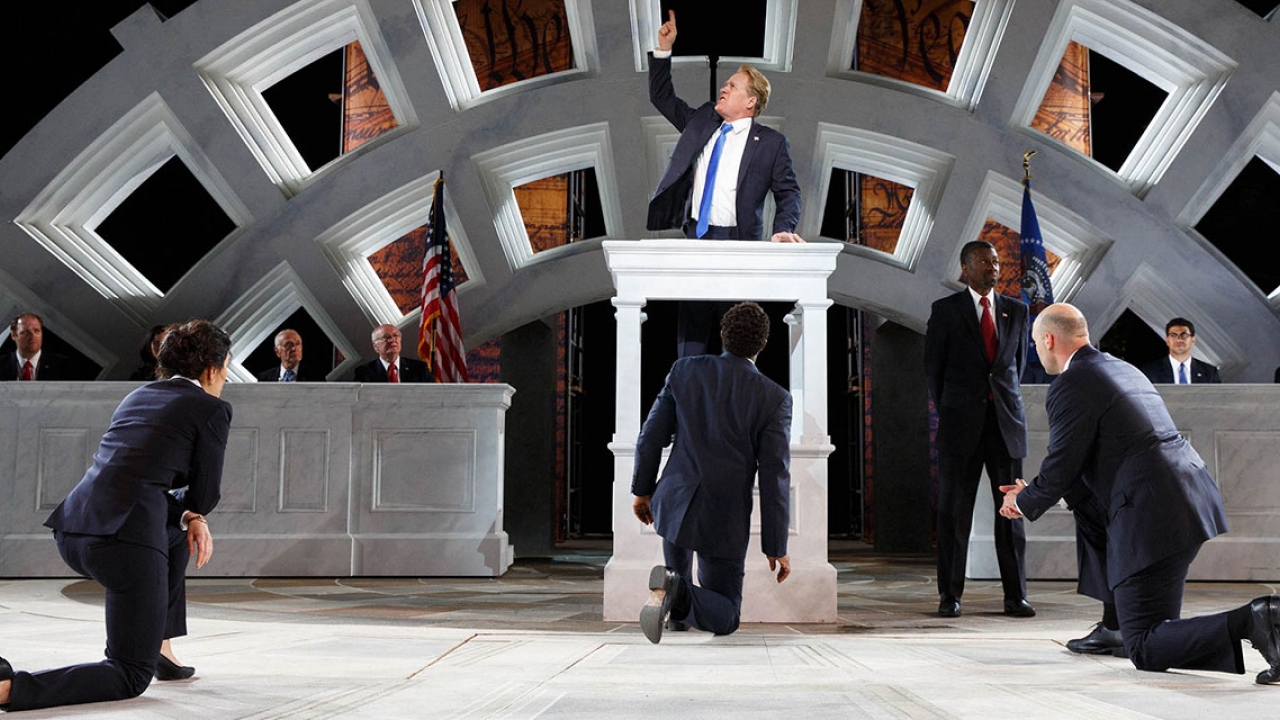Politico Magazine Runs Wellesley Professor’s Op-Ed on Controversial Production of “Julius Caesar”

Wellesley English Professor Yu Jin Ko penned an op-ed in Politico magazine on the Public Theater in New York’s Julius Caesar after the production made national news for its portrayal of Caesar—who is assassinated—as a President Trump-like character. The Free Shakespeare in the Park performances sparked threats to other Shakespeare theaters nationwide. Delta Air Lines pulled its funding from the Public Theater, and Bank of America pulled its sponsorship of the play but will continue to fund the organization.
A professor who teaches Shakespeare at every level, Ko said director Oskar Eustis’s choice to turn Julius Caesar into Donald Trump was entirely too predictable and simplistic, as were the hostile reactions to the production.
Ko wrote that it was quite obvious why Eustis “decided on election night to stage this play and to turn Julius Caesar into an orange-haired stand-in for President Donald Trump … In fact, it is so obvious that one is tempted say, “Et tu, Euste?”
Ko sees similarities between Caesar and Trump, and he supported Eustis’s vision of the play. However, he wrote that he would have preferred a much subtler version, in which the audience was given the power to reach its own conclusions.
“Eustis is a prolific and inventive artist whose body of work (from Angels in America to Hamilton) I deeply admire, but the reductive logic in the choice evokes the incensed invective that calls the populace ‘senseless things’ or ‘the common herd’ and ‘the rabblement.’ It’s simply a form of name-calling,” wrote Ko.
The production made headlines due to outrage from several quarters. Breitbart and a number of guests on Fox News denounced it as inciting murder, while others have accused it of intending to offend. Some also implied that Eustis’s interpretation of Julius Caesar was the impetus for the recent shootings at a baseball practice of congressional Republicans.
The irony, Ko wrote, is that the play shows political violence is a direct result of reductive, inflammatory public rhetoric. And even more ironic, said Ko, is that the obsession with “all things Trump” among those who oppose him boosts his status, in the same way obsessive media coverage of Trump prior to the Republican primary boosted and legitimized his candidacy.
Ko’s opinion is that Eustis imposed too heavy-handed and obvious a concept—Trump is Caesar—on the audience, when plenty of other inventive, less in-your-face ways of making topical allusions would have highlighted the relevance of Shakespeare to contemporary politics. This production, Ko concluded, only served to incite unproductive outrage on both sides of the political aisle.



